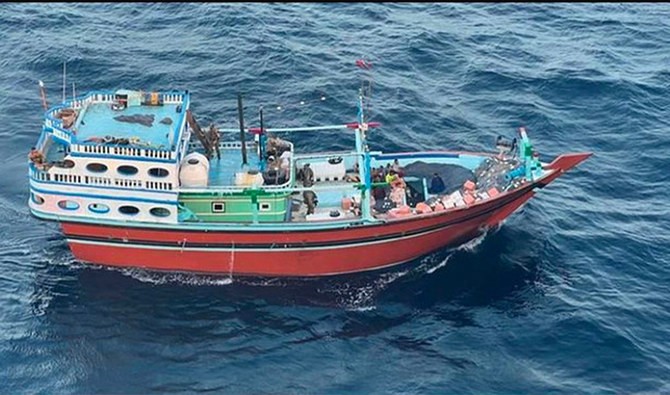Pak missile smuggling ring busted in Arabian Sea

Four Pakistanis have been charged by the US Department of Justice for smuggling advanced weapons to help the Houthis who have been targeting the US naval and merchant ships since the Israel-Hamas conflict. The weapons smugglers were carrying missile parts and other advanced weapons made by Iran to the Houthis.
The Pakistani-run global weapons ring was busted in January when US Navy
seals and other military personnel interdicted a dhow with four Pakistanis and seven others.
Preliminary analysis of the weapons seized aboard the dhow indicated them to be critical components for medium range ballistic missiles (MRBM) and anti-ship cruise missiles (ASCM), to include a warhead and propulsion and guidance components. The investigators found the weapons similar to the
weapons used by the Houthi rebel forces in recent attacks on merchant ships and US military ships in the Red Sea and Gulf of Aden.
The US action on the high seas cost the lives of two US Navy seals during the
operation.
The four Pakistanis have been identified as Muhammad Pahlawan, Mohammad Mazhar, Ghufran Ullah, and Izhar Muhammad. Pahlawan has been charged with intentionally and unlawfully transporting on board the dhow a warhead which he knew would be used by the Houthis to target the commercial and naval vessels traversing the Red Sea and surrounding waters.
According to Pahlawan, who was allegedly the captain of the dhow, the missile components were picked up from Chabahar port and were being taken to Somalia from where it would be shipped to the Houthis in Yemen. He was communicating with an unidentified handler through satellite phone.
This is the first seizure of lethal, Iranian-supplied advanced conventional weapons to the Houthis since the beginning of Houthi attacks against merchant ships in November 2023. According to the US Department of Justice, the interdiction also constitutes the first seizure of advanced Iranian-manufactured ballistic missile and cruise missile components by the U.S. Navy since November 2019.
The advanced conventional weapon parts were packaged without markings, labels, or identification in compartments near the front of the dhow. Most of the missile parts were concealed inside tubing or among buoys.






